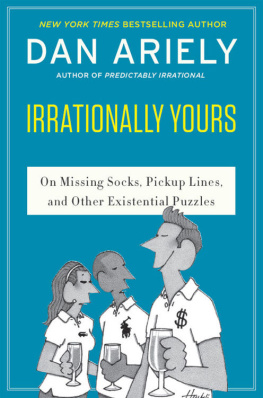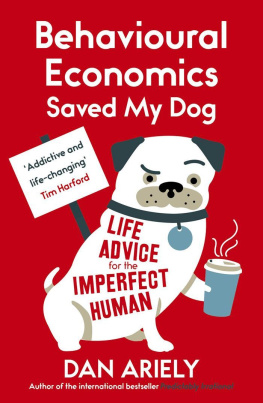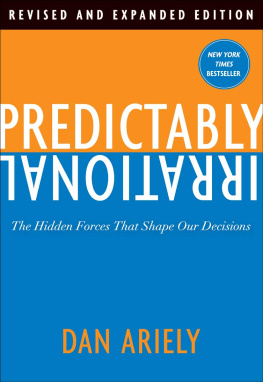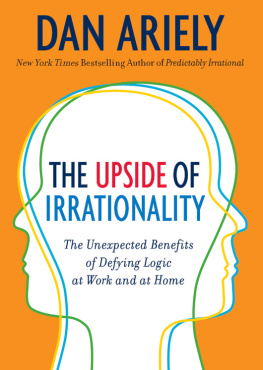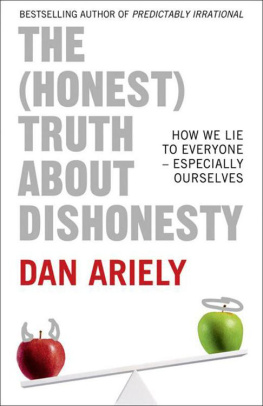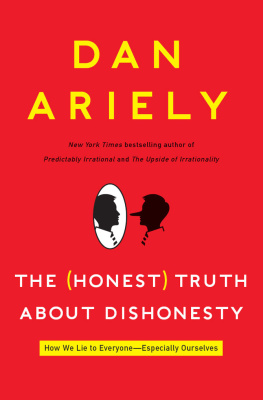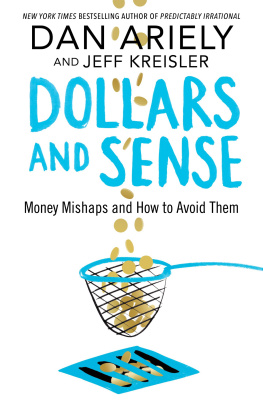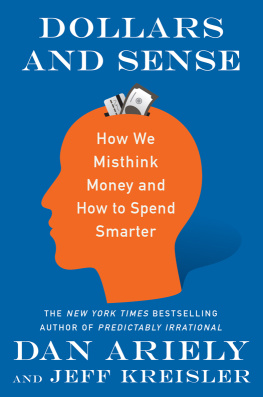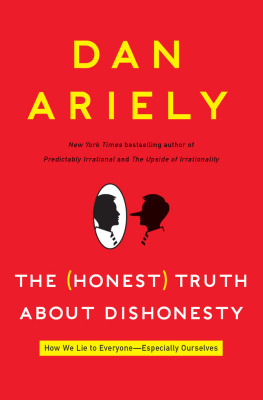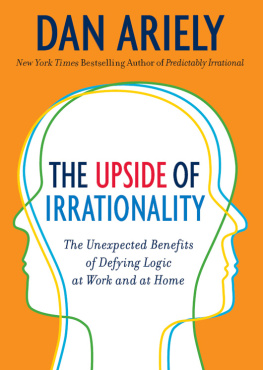
To the oddities, complexities, and beauty of human nature
Contents
Guide
Here is a possible rationalization: My ability to observe and reflect on human nature is rooted in my injury and its continuing effectsthanks to being ripped out of my teenage life, sustaining third degree burns on about 70 percent of my body, being hospitalized for almost three years, experiencing substantial daily pain, experiencing over and over the dysfunction of the medical system, and having extensive scars that make me feel out of place in most social circumstances. Combined, these elements (so the rationalization goes) have made me a better observer of life. It is also what brought me to study social science.
Dont get me wrong; I dont think that my injury was worth it. No one can rationalize this much pain and misery. But the complex experiences of my injury, time in the hospital, and life with extensive scars and disabilities have been my microscope on life. Through this perspective I have been able to observe substantial human suffering. I have seen people who managed their suffering and triumphed, and I have seen those who caved in. I have been exposed to different medical procedures and odd human interactions. From the distance of my hospital bed, I was able to observe the people around me go about their normal life, to wonder about human habits, and to speculate about the reasons we act the way we do.
Because of my scars, the pain, some odd-looking medical braces, and the pressure bandages that covered me from head to toe, the feeling of living separately from the normal day-to-day life did not stop when I left the hospital. As I made my first steps back into the reality that I once took for granted, my viewpoint expanded to include more mundane daily activities such as the way we shop, drive, volunteer, interact with coworkers, take risks, fight, and behave thoughtlessly. And, of course, I could not help but notice the intricate fiber that governs romantic life.
With this perspective, I turned to study psychology. Very soon my personal and professional life became deeply intertwined. I remembered placebo medications for pain, and I conducted experiments to better understand the effects of expectations on painful treatments. I remembered some of the bad news I got while in the hospital, and I tried to figure out how best to break bad news to patients. There were many other topics that crossed the personal/professional boundary, and over time I learned more and more about my own decisions and the behaviors of those around me. This was more than twenty-five years ago and since then I have dedicated most of my time to try to better understand human nature, focusing mostly on where we make mistakes and what can be done to improve our decisions, actions, and outcomes.
After writing academic papers on these topics for many years, I started writing about my research and its implications in a more conversational and less academic way. Perhaps because I described how my research grew out of my own difficult experiences, many people started sharing with me their personal struggles. Sometimes they were curious to know what social science can say about a particular experience they had, but most often these were questions about their own challenges and decisions.
While responding to as many of these requests as I could, it became apparent to me that some of these questions were of general interest. And in 2012, with permission of the people asking the questions, I started answering some of the broader questions publicly through my Wall Street Journal column Ask Ariely. The book you are now holding in your hands includes some edited and expanded answers from the column in addition to some questions and answers that have not appeared previously in press. Most important, this book also includes some wonderful cartoons by the talented William Haefeli that, in my opinion, deepen, improve, and expand my answers.
Now you have it. Aside from my ability to rationalize, does any of this make my advice more valuable, accurate, or useful? Ill let you be the judge.
Irrationally yours,
DAN ARIELY
Dear Dan,
Every year, when Christmas comes, I feel obligated to send Christmas cards to everyone I know, and every year, the number of cards I send gets larger and larger. It is now officially getting out of hand. Can I switch to sending cards only to my really close friends?
HOLLY
A few years ago I was ordained by the Church of Spiritual Humanism, so I feel that I am in the position to tell you that it is perfectly fine for you to send cards only to your good friends. As a social scientist, I dont think anyone left off the list will be offended and many of them might not even notice. Taking this step will also reduce their feeling of obligation to send you a card next yearso in the process you are also helping them with the same problem. And if you really want to eliminate the Christmas-card frenzy, there is always Judaism.
Friends, Expectations, Happiness

And once theyd finished everything on their to-do lists, they lived happily ever after.
{Illustrations 2015 William Haefeli}
Dear Dan,
Ive recently been promoted, and I now receive all sorts of requests for activities that have little to do with my love for my job. I recognize the importance of helping out coworkers and the organization as a whole, but these other activities are taking up too much of my time and making it impossible for me to do my job. How can I set my priorities better?
FRANCESCA
Ah yesthe perils of success. Promotions usually sound good, but once we get them, we often realize that they come with extra demands and annoyances. (Oddly, we dont seem to remember this lesson from promotion to promotion, so each time were surprised when we discover these extra costs.)
Back to your question. Heres what I suspect your new life looks like: Every day, nice coworkers who you want to help ask you to do something for them. On top of that, the request is usually for some time that is far into the futuresay a month from now. You look at your calendar and it looks rather empty, so you say to yourself, Since Im mostly free a month from now, how can I say no? But this is wrong. Your future is not really going to be free; the details are just not yet filled in. When the day arrives, you will have all kinds of things to do and your plate will be overflowingeven without the extra demands of this request. And at that point you will wish that you hadnt said yes.
This is a very common problem, and I would like to propose three simple tools that can help you better stick to your desired priorities.
First, every time a request comes in, ask yourself what you would do if it was for next week. Framed this way, you would look at your schedule and figure out if you would cancel some of your other obligations to make room for this new request. If you would cancel some things in order to make time, go ahead and accept. But, if you would not prioritize it over your other obligations, just say no.
As a second tool: When you receive a request, imagine that you look at your calendar to see if you can comply and you discover that you are fully booked that day without the ability to switch anything aroundmaybe you are out of town. Now, try to gauge your emotional reaction to this news. If you feel sad, you should go ahead and accept the request. On the other hand, if you feel relieved that you cant do it, turn it down.
Next page
